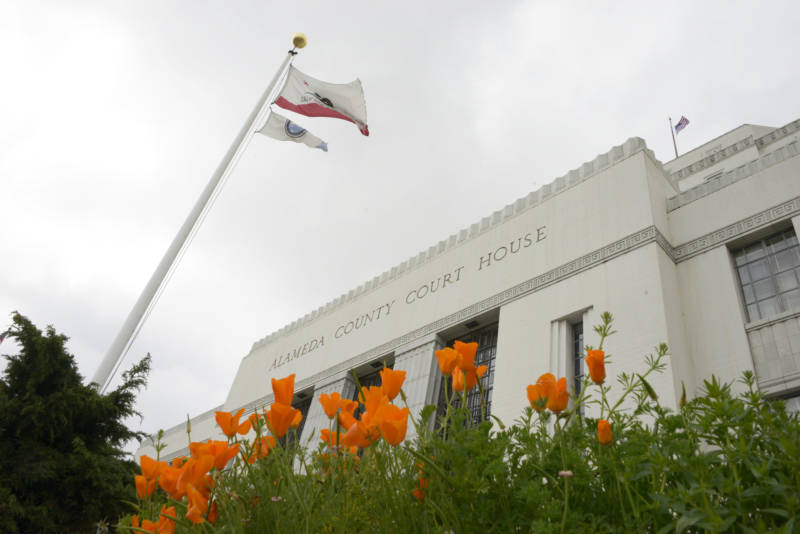Kai and Eva Ng appeared in court on April 4 to attend a hearing to determine whether certain evidence would be admissible regarding the warehouse. Both Ngs refused to answer questions from the prosecution or defense, invoking their Fifth Amendment right against self-incrimination.
On April 11, Judge Thompson quashed a defense subpoena for Oakland Mayor Libby Schaaf to testify, finding attorneys had failed to show she had personal knowledge of conditions in the warehouse prior to the fire.
The remainder of the month was largely taken up with jury selection, during which about 480 potential jurors filled out questionnaires.
If the trial remains on schedule, testimony would begin next week. The trial could last for months.
A Plea Deal Rejected
Last Aug. 10, Alameda County Superior Court Judge James Cramer rejected a plea agreement that called for Almena to be sentenced to nine years in prison and Harris to six years.
Cramer said he was declining to approve the agreement, which had been negotiated under the supervision of another judge, because he felt Almena had not acknowledged his responsibility or shown remorse for the fatal blaze. He pointed to a 30-page letter Almena had submitted to probation officers prior to sentencing in which Cramer said Almena cast himself as a "victim and a witness."
In rejecting the deal — a decision that led to the case going to trial — Cramer cautioned victims' families that they may not get the answers they're seeking.
"Each of you is suffering immeasurably. A trial won't solve that," he said. "Those of you who want a trial to prove that the city or the Fire Department or the landlord is just as guilty as these two men are, you're not going to get that trial."
Victims' families have alleged in lawsuits that several Oakland city agencies failed in their duty to inspect the warehouse building or follow up on complaints about the premises. The lawsuits also claim PG&E failed to properly monitor, inspect and repair electrical equipment that provided power to the building. Warehouse owner Chor Ng is also a defendant in the civil cases.
This story includes reporting from The Associated Press.
